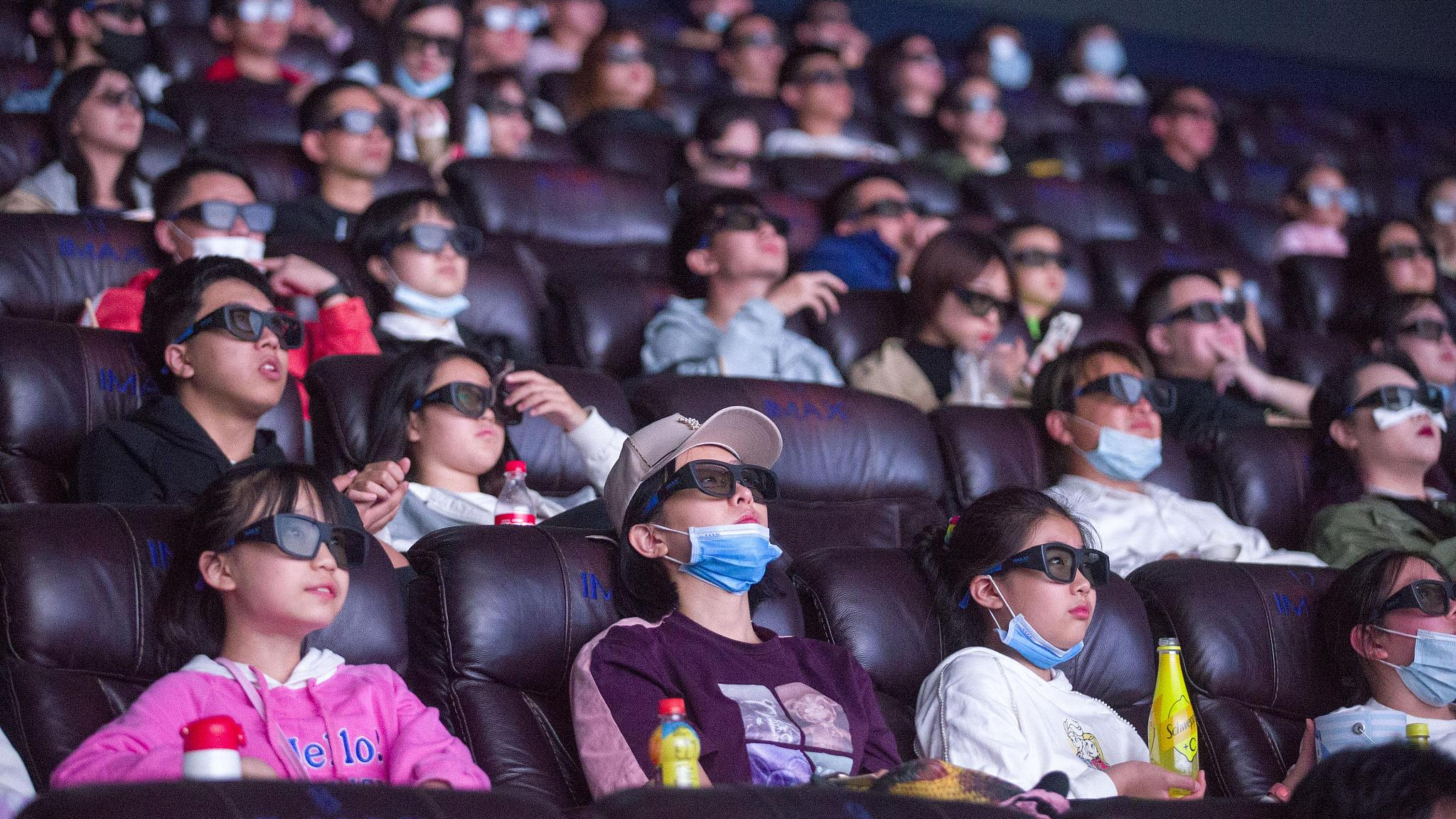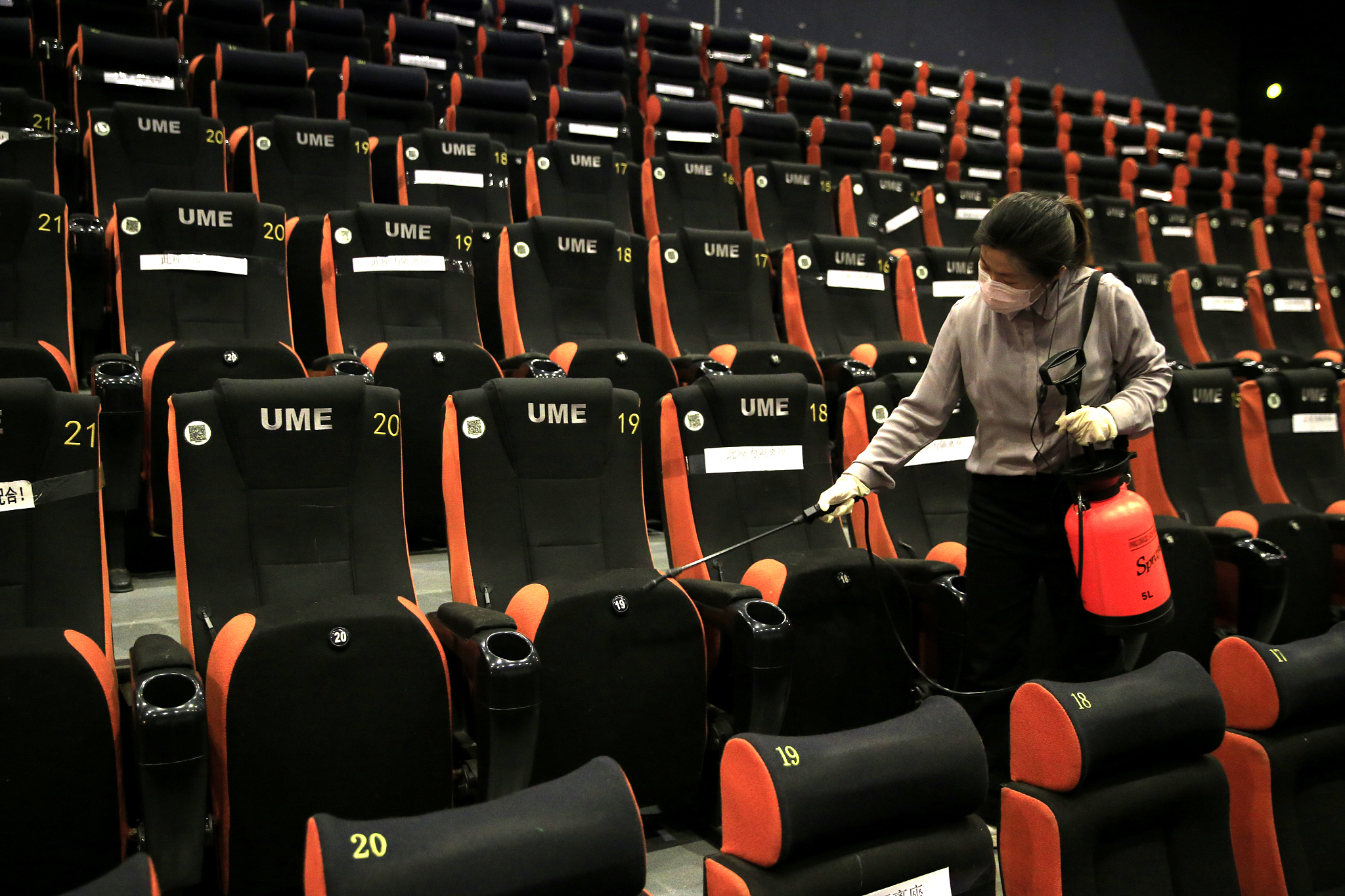
Moviegoers at a cinema in the city of Taiyuan, north China's Shanxi Province, during the National Day holiday, October 1, 2020. /CFP
Moviegoers at a cinema in the city of Taiyuan, north China's Shanxi Province, during the National Day holiday, October 1, 2020. /CFP
"Every producer in Hollywood is envious that China's theaters have been able to reopen safely," Jeff Most, a Hollywood producer known for the film series "The Crow," said.
"China managed their COVID-19 pandemic in a much better way than the U.S. did, and that kept their entertainment industry alive," he told Xinhua on Thursday, after Los Angeles County Department of Public Health announced that movie theaters in the most populous county in the U.S. would also be allowed to open indoors at 25-percent capacity with preventive measures as early as next Monday.
"It's a shame that we in the U.S. have had far fewer releases due to COVID-19 and that so many of our bigger films that could have been part of the resurging theater-going audiences in China have had to be released on streamers instead," said Most, finishing the successful adaptation to a new television series of his hit film, "The Specialist," though he hailed Thursday's move as a major step toward the recovery of the theater business.
There is no doubt that 2020 was labeled by business insiders as one of the worst years in the history of the entertainment industry, following the COVID-19 pandemic that locked down theaters and furloughed productions all over the world.
But the Chinese market's performance also showed them a light at the end of the tunnel.

Movie theaters in the city of Shijiazhuang, north China's Hebei Province, reopen with a series of safety and sanitization measures, March 1, 2021. /CFP
Movie theaters in the city of Shijiazhuang, north China's Hebei Province, reopen with a series of safety and sanitization measures, March 1, 2021. /CFP
Omar Kaczmarczyk, one of Hollywood's veteran producers now focusing on worldwide digital distribution options for independent filmmakers, said he was impressed with the speed and quality of China's resurgent film industry.
The Chinese middle class, 400 million strong, "... now have a higher standard of living and discretionary income, which many of them spend in motion picture theaters where they can see on the big screen how to join the world community and make their lives better," Kaczmarczyk said.
Under China's more stringent COVID-19 protocols, its film industry has made a quicker comeback, creating a recent resurgence in China for more homegrown domestic fare and enabling China to overtake the North American market last October as the highest grossing box office in the world.

Moviegoers line up to check in at an AMC movie theater in New York City, U.S., as movie theaters partially reopen in the city, March 5, 2021. /CFP
Moviegoers line up to check in at an AMC movie theater in New York City, U.S., as movie theaters partially reopen in the city, March 5, 2021. /CFP
Xian Li, senior vice president of Film and TV at SK Global, said previously that China's filmgoers' tastes were changing. Character-driven dramas are popular in China and simple homegrown, heartfelt dramas with no visual effects are performing as well as or sometimes better than blockbusters, according to Li.
"In Hollywood, probably 80 percent of production goes to blockbusters and maybe 20 percent to real stories. But in China, it's probably more like 50/50," Li said.
"In the U.S., Academy Award-winning pictures are considered the most well-made movies, but usually only gross up to $40 million, sometimes $100 million. But these types of movies in China can gross much higher," she said, adding that in Hollywood, "You need to provide a visual spectacle, but in China, it's more about how the story resonates with the audience."
"It is very encouraging for local Chinese filmmakers to see how far good storytelling will take them," Li added.
Read more: North American audiences hold back, even as more movie theaters open
Source(s): Xinhua News Agency

